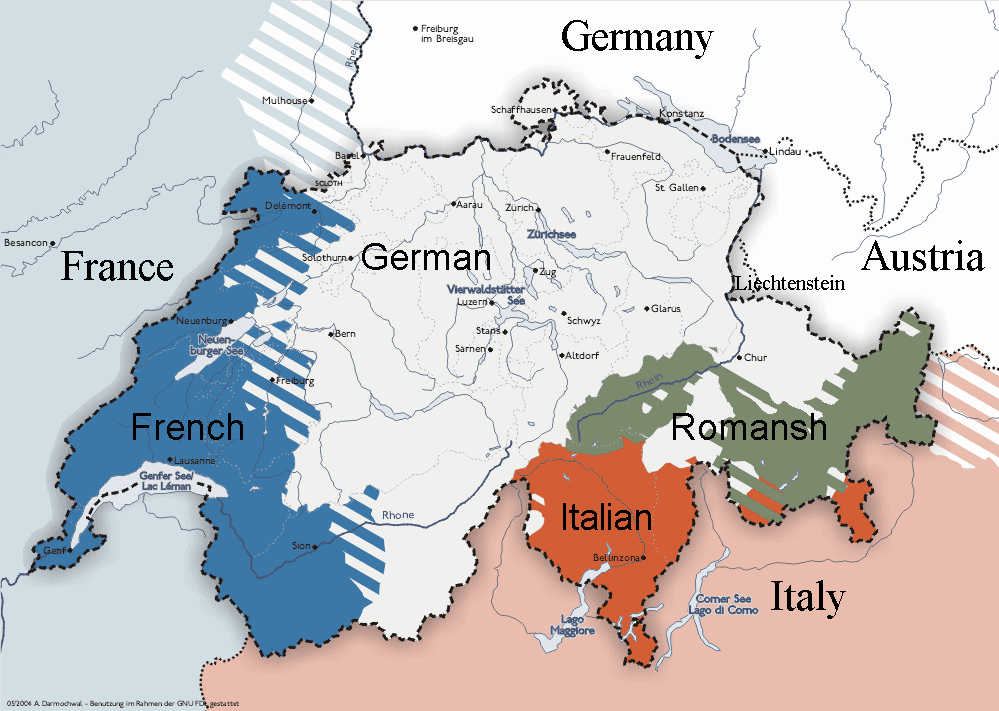When you visit a Swiss village or go hiking in the Alps, you’ll notice that Swiss people have a unique habit of saying hello to each other. This happens even between strangers, whether it’s on the street, in an elevator, or while crossing paths on a hiking trail.
Therefore, you may wonder what the greetings in Switzerland are. Rightly so, because greetings are important to know if you want to blend in. They are the first phrases you should learn when you travel to or live in a country. And the more you use these Swiss greetings in your daily life, the more natural they will become to you.
Grüezi / Grüessech
Grüezi is a Swiss-German word that means hello, and it’s commonly used in more formal situations. It’s a greeting that you’ll hear throughout Switzerland, but it’s particularly common in Central and Eastern parts of the country. The word comes from the expression ‘Gott grüez i,’ which means ‘may God greet you.’ If you’re greeting a group of people, you can say ‘grüezi mitenand,’ which means ‘hello everybody.’
In the canton of Bern and Solothurn, another greeting with the same meaning and formality is used: Grüessech. In Basel, however, locals usually say Griezi instead. These differences in greetings reflect the variations in dialects across different regions. Since Swiss German is a combination of dialects, there are no strict rules to follow, and you can use the greetings based on the region you’re in.
You’ll often hear people saying “Grüezi mitenand”, in various places like elevators, gym changing rooms, or office rooms. It’s a polite greeting people say, even if no one may be listening or they’re all strangers. If you pay attention, you’ll hear it frequently in daily life.

Hallo
Hallo is a greeting that falls between formal and informal. It’s actually a German greeting but is commonly used in Swiss German as well.
Hoi, Tschou/Tschau, Ciao, Sali
For informal greetings, “hoi” (pronounced “hoy”) is commonly used, especially among friends and younger people. Keep your ears open, and you’ll notice “hoi” everywhere you go.
In the northern parts of Switzerland, “sali” is also a common phrase you’ll hear, and it can be used interchangeably with “hoi.”
Similar to adding “mitenand” to “Grüezi” when greeting a group, you can add “zäme” to “hoi” or “sali.” So, an informal greeting to a group would be “hoi zäme,” which means “hi everyone.”

In Zurich and Aargau, you’ll often hear an imported phrase from Italian, which is “Ciao.” In Swiss German, it’s spelled “Tschau.” It’s an informal greeting that also gets “zäme” added when addressing multiple people. Again, the choice between “Ciao,” “hoi,” or “sali” depends on the person.
Guete Morge, Guete Tag
In addition, there are phrases for wishing someone a good morning, day, or evening: Guete Morge (good morning), Guete Daag or Guete Tag (good day), and Guete Abig (good evening). These phrases can be used in both formal and informal situations, so you can also use them with friends and family. When greeting a group of people, you can say Guete Morge Zäme or Guete Morge Mitenand, which means “good morning everyone.”

Adieu, Uf Widerluege
Adieu is a common way to say ‘goodbye’ in the Swiss German-speaking communities of Switzerland, and it’s often used as a formal farewell.
Another phrase used when parting ways, especially in formal settings, is “Uf Widerluege.” This phrase means ‘until we see each other again’ and comes from the Old High German word ‘luogēn,’ which means ‘to look.’
Other Greetings in Switzerland
Let’s talk about greetings in Switzerland’s different regions, considering that the country has four official languages.
In the Italian-speaking part of Switzerland, a popular greeting is “buon giorno,” which means ‘good day.’
In the French-speaking part, people greet each other by saying “bonjour,” which also means ‘good day.’
When it comes to Romansh, things are a bit more intricate because there are five different dialects. However, two common phrases to greet others are “allegra” and “bun di.”

An Overview Of Swiss Grettings
| Swiss German | English | Formality | Geography |
| Hallo | Hi | formal/informal | |
| Grüezi | Hello | formal, singular | Zurich & Eastern Switzerland |
| Grüezi mitenand | Hello Everyone | formal, plural | Zurich & Eastern Switzerland |
| Grüessech | Hello | formal | Bern, Solothurn |
| Griezi | Hello | formal | Basel |
| Hoi | Hi | informal | |
| Salü | Hi | informal | |
| Sali | Hi | informal | |
| Tschau | Hi | informal | |
| Tschou | Hi | informal |
Here is a short video which illustrates the pronunciation of the different words very well. Although for me, as a Bernese, my ears are bleeding, because of the Zurich dialect which is taught. No am joking of course, but the competition between the cantons is also part of Switzerland and self-understanding is always exactly the dialect of the region which you speak yourself is the absolutely most beautiful Swiss German ;-).
Greetings in Switzerland: Conclusion
Greetings play an important role in Swiss culture, reflecting the country’s linguistic diversity and regional variations. While the Swiss-German region commonly uses greetings like “Grüezi,” “Hallo,” “Hoi,” and “Sali,” other parts of Switzerland have their own unique greetings.
You might also like the following article:
Understanding and using these greetings not only shows respect but also helps you connect with the locals and blend into the cultural fabric of Switzerland.
So, go ahead and embrace the Swiss way of greeting, as it opens doors to meaningful connections and enriches your journey in this diverse and beautiful country.
